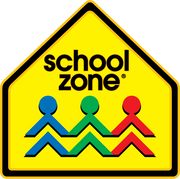We know that avid readers tend to be successful students. But evidence continues to build that reading can also create kinder, more sensitive and culturally aware people. This provides yet another reason to make reading part of kids’ frequently-and-from-now-on routine.
Empathy needs nurturing and development
In a 2019 blog post from the digital reading platform Epic, titled "Reading & Empathy: A Bridge," it says, “While humans are born hardwired with the capacity for empathy, empathic abilities don’t come naturally from birth--they need to be taught, nurtured and practiced over time.”
They quote Maria Nikolajeva, professor of education at the University of Cambridge, as saying that “reading fiction provides an excellent training for young people in developing and practicing empathy and theory of mind, that is, understanding of how other people feel and think.”
Children’s book author Krista Brock notes that “The reason reading stories raises empathy levels is because in reading, we are taking on the perspective of the characters, trying out their experiences, emotions, and reactions.”
Reading also increases emotional intelligence
Last year, Very Well Mind defined emotional intelligence as “the ability to perceive, control, and evaluate emotions.” They noted that “some experts even suggest that it can be more important than IQ in your overall success in life.” Respecting others, listening carefully, and recognizing and labeling one’s own and others’ emotions are all part of social-emotional learning.
That’s why the Anywhere Teacher online learning system includes multiple activities to help build skills in these areas such as "Introducing Basic Emotions," "Describing My Emotions," and "Identifying Emotions with Charlie."
In a 2018 article for Reading Partners, Katie Priske, AmeriCorps Regional Site Coordinator, writes that “Studies show that reading can help kids build developmental skills of emotional intelligence and empathy, enabling our young readers to better connect with other perspectives and human experiences.”
Young readers get much to consider (especially with reflection prompted by mom and dad) in terms of “other perspectives and human experiences” from the Start to Read! Level 3 storybook A Different Tune.


The story opens with, “Once upon a time, in a land far away, everyone looked alike and did things the same way.” Children learn that being different from everyone can be a wonderful gift. The book is available in a classic and an updated version as well as several formats including the print book, iOS eBook, and iOS Read-Along eBook, among others, and it is also part of Anywhere Teacher. Other books in the Start to Read! series also deal with emotions.
 Among them are Benny’s Baby Brother, a story about a big brother who changes his mind about the latest addition to their family, and The Big Race, about twin brothers who team up to surprise, confuse, and outsmart a bully.
Among them are Benny’s Baby Brother, a story about a big brother who changes his mind about the latest addition to their family, and The Big Race, about twin brothers who team up to surprise, confuse, and outsmart a bully.
Priske observes that “Whether fiction or nonfiction, reading offers a unique experience to become engrossed in the stories and life experiences of the characters in the book,” adding that this provides “readers with the opportunity to connect with other worldviews.”
Cultivate kindness, and travel to faraway places while staying at home
In a post to Imagination Soup, a blog by Melissa Taylor, “mom, writer, & former elementary teacher & literacy trainer," Taylor, as preface to her review, "42 Picture Books About Kindness," writes, “Let’s show our kids that we value listening and learning about others with curiosity, open-heartedness, and kindness.
Similarly, the Growing Book by Book community for those wanting to help support early readers, discusses kindness-themed books, but also offers a list of “literacy related kindness acts”—suggestions for spreading kindness—with all of them tied to books and reading. The list includes “leave a book for someone to find,” “read to an elderly neighbor,” and “buy a book to donate to a classroom.”
For anyone who has experienced the joy of “traveling” to new and distant places in the pages of a book, and meeting characters quite unlike one’s immediate circle of friends and family, whether a heart-wrenching classic or a sci-fi thriller, it’s not hard to understand why reading can build empathy and emotional IQ.
Perhaps Katie Priske describes these “softer” benefits of reading best and most succinctly, when she concludes that “Stories matter, and understanding others matters.”










